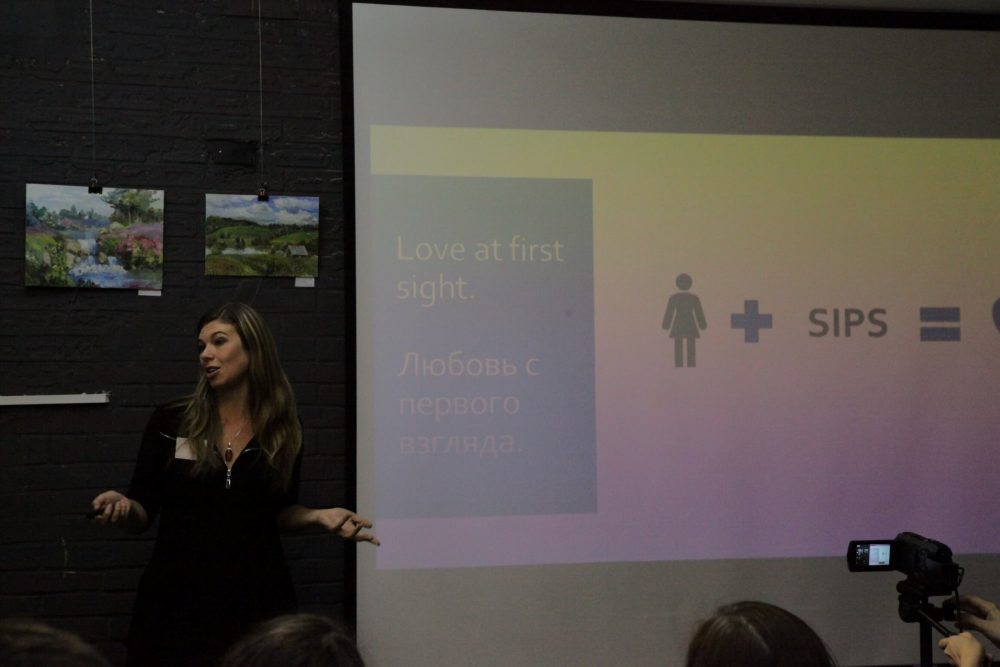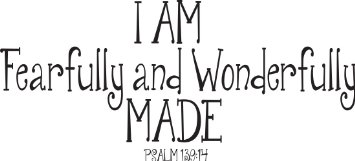
What’s in a name? Losing my ‘K’
What’s in a name?
We have long known that ‘Kinesiology’ is not the perfect word to describe what we do. Yes, there is muscle testing and yes, we study muscle movement, but we know that what we do falls into a broad spectrum. Some of our modalities are overtly concerned with structure; muscles, spindle cells, proprioception and the way these move together. Others don’t pay attention to muscle or structure at all, perhaps only teaching the use of a single indicator muscle in order to read stress found mostly in the emotional and energetic systems. Other systems run the gambit and dip into both ends. No wonder it is difficult for us to find a common term that could describe all these modalities well!
Historically then, we have used modifiers to set this work apart from Kinesiology as it is taught in universities with its focus on exercise and physical therapy. We have used words like “Energetic” or “Specialized” or, for the chiropractors and doctors among us, “Applied”. And this has worked for nearly 50 years without too much struggle.
Suddenly, this has changed.
While we might all agree that there is a need for consistency and agreement about what we call ourselves, this is difficult to achieve. The truth is that we have never had agreement or consistency in this regard. One of the things that I found so appealing when the idea of Knowlative was first explained to me was the concept of a common and well-defined vocabulary, so that we all know what we are actually talking about! Because of the way that muscle testing has evolved, each offshoot and new class ends up renaming certain things in order to make them ‘their own’, trying to avoid copyright or accusations of using another’s work. As a result, we have lots of very similar techniques all called different things and creating confusion. But, while our industry has deep roots into Chinese and Ayurvedic, it is relatively new. 50 years is barely enough time for a science to figure out which way is up (so to speak) and we haven’t really defined many aspects of ‘specialized kinesiology’. Generally, we think of it as an information gathering technique that utilizes muscle monitoring or muscle response testing. This is the common ground between all the different branches. What we do after that varies widely depending on the modality, so it seems like we might need to ask ourselves, what part of the experience are we trying to rename? If it is simply the kinesio-part, then muscle monitoring or muscle response testing (MRT) seems like it fits the bill.
And yet, that doesn’t seem to be enough does it? Because, I don’t know about you, but I want a title that evokes more feeling than that, something that seems to overarch and take all of our little niches in under its wings. And this is difficult to do.
When I first realized what was happening with the Canadian association that I have begun referring to as CanAS? (since they can’t use the ‘K’ that used to be there and don’t know what will replace it yet), I began really thinking about replacement words. Surely there is something else that we could call ourselves? And yes, it’s going to take a long time for everyone to get on board with the name change, but we could make a start.
Then, I was hosting a Mastermind Meeting for IASK and we were discussing some of these ideas and it hit me: this isn’t about a name. This is about regulating who gets to work on people. This is about narrowing down people’s options for their own health and wellbeing. We have seen this happening with the regulation of supplements over the last decade and with tightening definitions of what even doctors are and are not allowed to do. I don’t want to sound paranoid or conspiracy-theoryish, but it seems like, in most countries, there is a push back right now against some aspect of what we are doing. This isn’t really about a word, it is about fear. Fear that the public might not understand the differences between the training of a Kinesiologist and that of a Specialized Kinesiology Practitioner. Fear that the power of a university degree is diluted by those of us using this word in another way. And, (dare I say it?) fear that we are getting too much of the pie.
I get it – I have to explain the differences between the different forms of Kinesiology to people all the time. And yet, I don’t think there is the slightest chance that anyone who lands on my website or is reading my posts on Facebook or is thinking of attending a Touch for Health class, is confused about what they are getting into. It’s crystal clear. I have literally never had someone arrive at my place for a session expecting that we were going to do some exercises and physical therapy. Perhaps there are Kinesiologists at the gym who have people show up there expecting to have their meridian system balanced? I can only assume…
I am left then thinking about how this plays out. Because dropping the word Kinesiology will be annoying for me and cause a lot of extra work as I retrofit all my websites and content, but it wouldn’t be the end of the world. But here’s my fear (seems only fair to write it here since I guessed at a bunch of theirs), I don’t think the kind of people who are concerned about us using a word are going to be content with us choosing something else. And once we begin to retreat it becomes difficult to stop. Let’s say for example that we all agree to use the term Muscle Monitors. I don’t know if that will stand – I imagine that it might meet with a response like “You don’t work with muscles, that’s what we do.” We can’t use words like ‘medicine, clinical, practitioner’ in many places, so nothing like ‘Holistic Medicine’ is going to work. We can’t say ‘massage’ in many places or even draw too much attention to the fact that we touch the body as that is not allowed in many States unless you are an ordained minister or a Registered Massage Therapist.
The words that mean things are being taken from us. Perhaps we need to make up some new terminology.
A few humble suggestions:
Kinesthetician
Kinesionaut
Holistigram
Holisticology (which when then make us Holisticologists)
And finally: WizGuruoctors. This name comes with mandatory pink sparkles.
OK, so all of these are a bit facetious (except for Holisticology, I actually think I could work with that). We can play by the rules and change the names, but the truth is that the threat They see doesn’t change with a new title on our business cards. We are in a position where we can reinvent ourselves and how the world is seeing us. Rather than ask; what do we call ourselves; let’s ask the question; who are we and what do we stand for? What falls into this category and what doesn’t? How do we self-regulate so the government doesn’t feel like it has to? And how much are we willing to give before we fight back?
We’re all in this together. Be Amazing, KinesioGeeks
Note: For the first time in 12 years, I am not currently a CanAS? Member, having decided to let my membership lapse after 3 years of being in Costa Rica. Nothing I write here has any connection to that Board or the Association
A few interesting facts about Kinesiology (most of this is from Wikipedia and I have kept the links in place so you can check it out if you are so inclined:
The world’s first kinesiology department was launched in 1967 at the University of Waterloo, Canada.
Canada is one of the only countries in the world where ‘Kinesiology’ is a professional designation
The Swedish medical gymnast and kinesiologist Carl August Georgii (sv), Professor at the Royal Gymnastic Central Institute GCI in Stockholm, was the one who created and coined the new international word Kinesiology in 1854. According to my friend in Sweden, Kinesiology (of the Specialized or Energetic variety) is one of the four types of bodywork that qualify for their health pan there and changing the name would mean that people could no longer use their medical coverage for sessions.
In Canada, Kinesiology has been designated a regulated health profession in Ontario. Kinesiology was granted the right to regulate in the province of Ontario in the summer of 2007 and similar proposals have been made for other provinces. The College of Kinesiologists of Ontario achieved proclamation on April 1, 2013, at which time the professional title “Kinesiologist” became protected by law. In Ontario only members of the college may call themselves a Registered Kinesiologist.
George J. Goodheart, a chiropractor, originated applied kinesiology in 1964[5] and began teaching it to other chiropractors.[6] An organization of Goodheart Study Group Leaders began meeting in 1973, selected the name “The International College of Applied Kinesiology” (ICAK) in 1974, adopted bylaws in 1975, elected officers in 1975, and “certified” its charter members (called “diplomates”) in 1976.[7] ICAK now considers 1976 to be the date it was founded and 1973 to be the date that its first chairman took office.[8]




4 Comments
Rochelle
This has been fun to read and learn from
Off to my journal and meditation, may something come from it as this is a great topic to ponder.
Being in Canada and in the industry of this self care work, I’m finding myself with these same questions even before “losing my K” situation came about.
The work we do is magical and possible for anyone to do, that what I love most about it. It helps to free us with answers from the body.
Thank you for this contribution of your time and literacy wizardry
admin
I’m interested in opening the door for conversation about this – would love to hear what comes to you through your journals and thoughts over the next few weeks!
Greg Webb
Very Nicely written Alexis. Thanks for sending this our way. Lots of ESR holding currently required here in the great white north. I too hold that yes, it sucks, in so very many ways. yet, it is still the best horrible thing we have had to deal with in some time. And as stressful as it is, provides an opportunity for new collective vision building and re-defining.
admin
Exactly Greg! Not retreating into the shadows or rushing in swinging, but a third option where we think and talk and come up with a bit of a plan for ourselves! Thanks for reading.